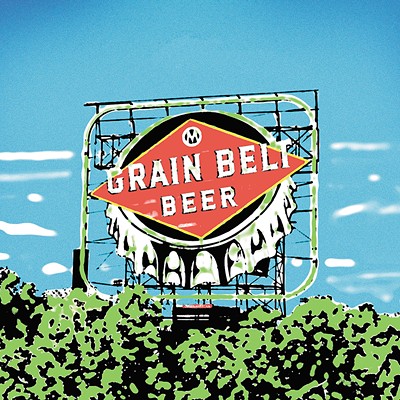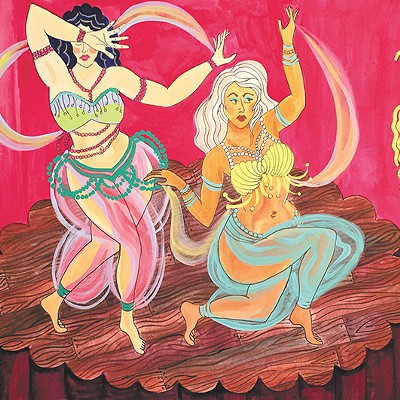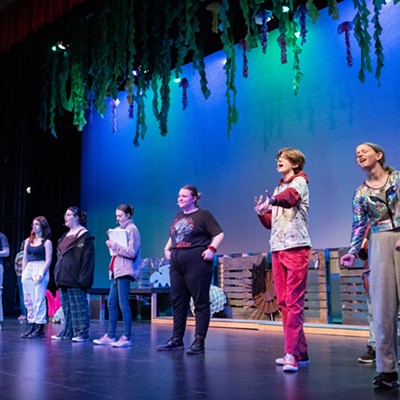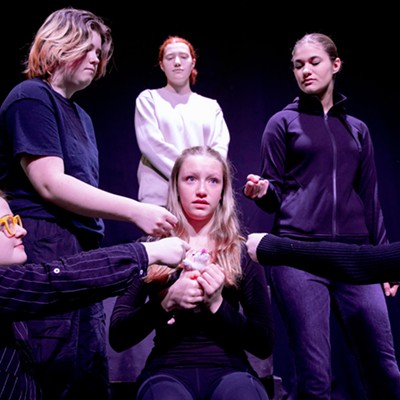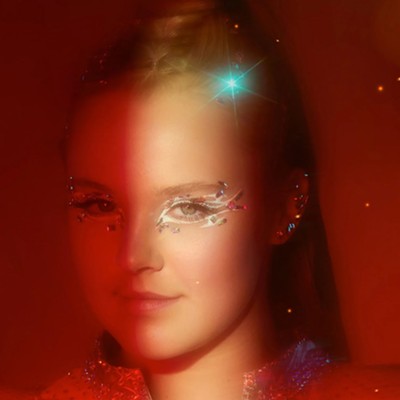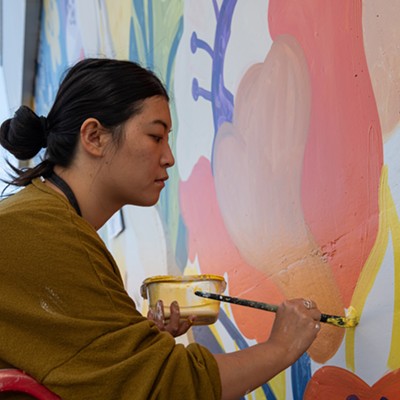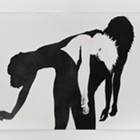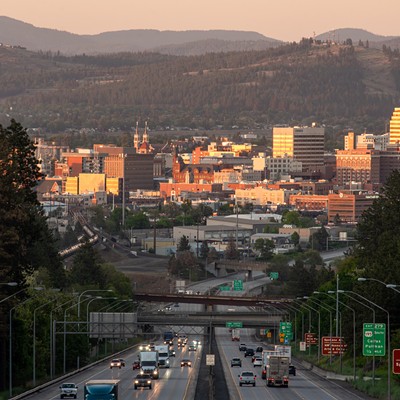At Tod & John's in Urbana, Illinois, I found $60 on the floor at the base of my bar stool, three $20 bills wrapped around each other. I was 21 years old, Sunday evening broke. Adjusted for time, memory and the inflation of both, those $60 would be worth $15,000 today. I looked around the place. Almost no one was there. I put the money on the bar, sipped my beer and waited. Maybe 10 minutes passed. I asked Tod to break a $20 for cigarette change. I ordered bourbon and Coke. I bought a fresh pack of cigarettes, put it under my nearly empty pack, and settled in.
Tod & John's was the first bar that felt like my place. It was too far from campus to be a student joint, and being there felt like leaving the student life behind. At Tod & John's, I was as happy to drink alone as with friends or a woman. The only time I remember going there with a date, we argued blindness and deafness and which would be easier. "All things considered," I said, "and because of music, I'd rather be blind."
This next part is too convenient for fiction, too manipulative of the moment and the reader, but just as I said, "I'd rather be blind," I noticed over Alison's shoulder, maybe five stools down, Blind George the drummer, facing me. George didn't wear dark glasses, and his eyes went in different directions. He smiled toward me. I didn't usually feel like an idiot at Tod & John's, but I knew I was an idiot that night.
Three years earlier at the Illini Inn, which everyone called Willy's, I stood chugging 20 ounces of Old Style, the beer running down my chin, until the bartender rang a bell making me a member of the Mug Club. The drinking age was 21 in Illinois, as it was in every state, but 18-year-olds were allowed to drink at Willy's for some reason.
Willy's had darts and pinball machines and a jukebox with songs decades out of date that everyone loved and sang to: "Smoke Gets in Your Eyes" at closing, and "Mack the Knife" all night long. I don't think we loved those songs ironically, though we never listened to them anywhere else. Maybe it was a relief from trying to be cool, loving those sort of ridiculous songs from another era. Willy's almost became my bar — I wanted it to be — but I wasn't old enough to have a bar yet, a dark place to sit by myself, a place for adults that wasn't home or work or church. I stood on that beaten wooden floor, chugging 20 ounces of Old Style, what everyone called Dog Style, the beer running down my face, trying to join the Mug Club. I didn't realize yet how much I hated clubs.
When I was 19, I went with friends to Cochrane's for Little Kings night, and near closing, we found ourselves along the second floor gallery rail, dropping 7-ounce Little Kings bottles to the floor and watching them explode, shattering and spraying beer amongst the first-floor drinkers. We were not arrested for this behavior or ashamed of it, and no one on the floor was hurt. Years later, in the North End of Boston during the Fisherman's Feast, I would accidently drop an unopened can of Molson from my brother's third-floor roof to the sidewalk below. I cowered for a minute, terrified I'd killed someone. But there were no sirens, no screams. When I finally looked over the edge of the roof, there was a wet spot on the sidewalk, but no dead bodies.
Little Kings came three for a dollar, maybe three for two. At a bar in Blue Point, out on Long Island, I sat for hours one night, drinking a bucket of Rolling Rock, three for five dollars, listening to a couple at the table behind me end their relationship. I could not tear myself away. "But why?" the man kept saying. "I'm telling you why," the woman said. "I'll always love you," the woman said. "But why?" the man said. I sat listening, moved by their hurt, their emotion, the tenderness they were showing each other, relieved not to be them.
In Providence, my bar was Babe's, before students from Brown and RISD colonized the place. It was an old man joint, run by an old man, Babe, a former boxer with the nose to prove it, pickled eggs in a jar on the bar and pictures of Jack Kennedy on the wall. I'd sit there for an hour at night, maybe once every two weeks, watching the Sox on TV, the Pats, the Celtics against the Lakers.
In Portsmouth, at the State Street Saloon, I'd smoke cigarettes and drink bourbon next to Tony, the Vietnam-vet chef, who, after closing the restaurant side each night, drank white Russians until he was incoherent. I always tried to be gone by then.
In Manhattan, there was a famous writer's bar, Elaine's, where I wanted to belong but never would or could. One night at Elaine's, I was bumped repeatedly by a loud-mouthed lawyer in an expensive suit as I stood in the packed space by the bar. I finally held a lit cigarette against my leg, which the lawyer slammed into as he slammed into me. I watched the dislodged cherry burn a quarter-sized hole in the worsted wool of his jacket. Then I left. I don't think I ever drank there again.
There were bars of joy in the city, Chumley's, Cedar Street Tavern, McSorley's, where my buddy Paul fell in love with an Irish barmaid a month or two off the boat. We stayed for a long time that night, drinking creamy McSorley's ale, and when we finally left, Paul wouldn't ask the barmaid for her number. Didn't want to ruin it, he said. There were fantastic urinals at P.J. Clarke's, giant porcelain slabs the side walls of which would practically surround you as you stood before them, monstrous upright piss caskets. At the Royalton Hotel, the urinal was a steel-backed waterfall. There were rooftop hotel bars worth the price of the one drink you could afford for the view, and good bars on Hudson Street: Time, the Cowgirl Hall of Fame, the White Horse, where Dylan Thomas purportedly drank himself to death.
There was a White Horse in Champaign, too, when I was first going to bars, where I was somehow allowed to drink even though I was only 18. Monday was Jack and Coke night, and that's how I learned to drink whiskey when I was 18 and 19 and 20. With Coke.
With Coke is how I ordered it at Tod & John's the night I found $60 on the floor at my feet. It was a Sunday night around Easter. Might have been Easter. Tod & John's didn't close for anything. Maybe that's why hardly anyone was there — because it was a holiday. There was still a little light coming in through the big plate-glass window up front, pouring over the pool table. I had a book with me, a notebook too. I was going to have a couple beers and read a little, maybe try to write a little, until my money ran out. An hour maybe, two beers. I don't know why I looked down. Maybe I dropped my matches. On the floor at my feet were those three $20 bills, one wrapped around the other. I laid that money on the bar and let it sit. Nobody claimed it. I ordered bourbon and Coke, got a fresh pack of cigarettes. I ordered another bourbon and Coke. A beer. I bought Tod a drink. I ordered two sliders and fries, and ate and drank as the light went down, the world and everything else outside waiting. ♦





